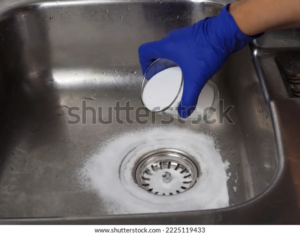A roof is a significant investment, and it’s crucial to preserve it. Routine maintenance helps to catch issues like broken or missing shingles, moss or algae growth and poor attic ventilation before they escalate into major problems.

Leaks and moisture accumulation allow for mold or mildew growth, which can damage building materials and create a health hazard for occupants. Addressing these problems promptly can reduce indoor air quality and energy costs by reducing strain on heating and cooling systems. For professional help, contact Ellingon Roofing LLC.
The roof serves as the first line of defense for the property, shielding it from a variety of environmental stressors. These include the sun’s ultraviolet rays that degrade roofing materials, rain that exploits any weakness and infiltrates the building envelope, and snow and ice that can break down or lift shingles.
Regular inspections enable the detection of these problems before they become major and costly. In many cases, a problem may go unnoticed until it leads to a leak in the ceiling or structural damage that threatens the integrity of the building. Typically, these issues start out small and can be addressed quickly when a professional inspector examines the roof.
A professional roof inspection includes a comprehensive review of all aspects of the roofing system. The inspector looks for deteriorated or missing shingles, damaged flashing, signs of rot or algae, and any other potential problems. The inspector will also check the condition of the soffit and fascia boards, which can be susceptible to water and pest infiltration. The inspector will also check the condition of penetrations such as skylights, chimneys, and vent pipes.
When a roof is properly maintained, it can last for a long time. However, there are some issues that can occur that require repairs to the roof structure or the installation of a new roof system. These repairs or replacements are considerably more expensive than a regular maintenance program and can lead to significant problems for the building’s inhabitants.
In addition to addressing issues, a regular roof inspection allows the homeowner to get ahead of any potential problems that can arise. This approach can save money and time, prevent expensive repair bills or structural damage to the building, and reduce energy costs.
Whether you own a home or commercial facility, the roofing system is a crucial investment that requires proper care and maintenance to prolong its lifespan. Regular inspections can identify issues early, prevent costly repairs or replacements, and help keep occupants safe. Contact Triple Crown Roofing today to schedule your next roof inspection!
Clean the Gutters
Gutters are one of your roof’s primary defenses against water damage. They collect rainwater from the roof and direct it down and away from the foundation of your home via downspouts. Unfortunately, they can become clogged with leaves and other debris if they aren’t cleaned properly. Clogged gutters can lead to roof leaks, water pooling around the building or overflows that flood basements or cellars. Keeping your gutters clear is essential to keeping them working properly, especially during stormy weather or wintertime in snow zones.
Clogged gutters leave no place for rainwater to flow, forcing it onto the roof where it can soak through shingles and cause cracks or leaks in the ceiling. Leaking roofs are expensive to repair, and they can also rot the wood underneath the shingles. Clean gutters are an inexpensive way to keep your home safe and dry.
During the fall and spring, it’s a good idea to inspect the gutters and downspouts and remove any accumulated material. A few hours of work can save you thousands in costly roof repairs and foundational damage.
If you don’t feel comfortable doing it yourself, a professional roof maintenance company can handle the task for a reasonable fee. Besides cleaning the gutters, they can trim back overhanging tree branches that might be rubbing against the roof and check that all seals around roof penetrations like skylights, chimneys and vents are in good shape.
Other preventative roofing care includes removing moss and lichen that grow in damp or shaded areas. These spores can be very damaging, especially if they are allowed to grow into large colonies.
Remove Debris
Debris on your roof can lead to several problems, including clogged gutters, roof leaks, and pest infestation. Regularly removing debris can help prevent these issues from occurring.
When you clear debris from your roof, you can also see any areas that may need repairs. For example, if you see a lot of shingle debris in your gutters, it could indicate that the shingles are starting to break down. This means it’s time to contact a professional roofer for a replacement or repair.
Removing debris from your roof can be dangerous, especially if the conditions are windy or rainy. When the weather is bad, it increases your risk of falling off the roof or losing traction on a ladder. It’s also important to remove debris from the roof in dry conditions, so it doesn’t damage the shingles or other roofing materials.
It’s also important to know how much debris is too heavy to safely drag from the roof. A general rule of thumb is that if it can’t be easily lifted, it’s too heavy and needs to be removed by professionals. Heavy debris can scrape and otherwise damage tiles, shingles, and other roofing materials.
Debris can also impact the energy efficiency of your roof. Ideally, your roof is designed to reflect the sun’s rays and keep the inside of the building cool and comfortable. However, debris can block this process and cause the interior of the building to heat up. As a result, you’ll use more energy to cool the building and pay higher electricity bills.
Another concern with debris is that it can attract pests and other animals to your home. They can then cause damage to your roof and the rest of the building by chewing on electrical wiring, making holes in the walls, or depositing feces and other waste in your attic.
A well-maintained roof is vital to the health and longevity of your home or business. By inspecting, cleaning the gutters, and removing debris regularly, you can prevent costly repairs in the future. For more information about keeping your roof in top condition, contact Bert Roofing today for a quote.
Remove Animals
If you notice gnawing or scratching sounds coming from your attic, it’s likely time to call a wildlife removal specialist. Wild animals are looking for safe places to raise their young and may find a spot in your attic that provides warmth, safety and shelter. They are also capable of chewing through drywall and insulation and cause costly damage to your property.
The most common animal entry point is a poorly screened roof vent. Other entry points include open plumbing stacks, eave vents, fascia and the roof itself. A raccoon or squirrel can widen even the smallest opening enough to enter and start nesting. These animals are excellent climbers and can rip the shingles off your roof, making it vulnerable to leaks. They can also gnaw through electrical wires, which poses the risk of fire.
Regular inspections by a roofing professional help to prevent these animals from finding their way inside your home. These professionals are familiar with the most common animal entry points and can identify them even in the harshest of weather conditions. They will be able to determine why the animal chose that area of your property and provide long term solutions to keep it out.
Other prevention strategies involve removing food sources, such as trash cans, bird feeders and pet foods from your yard. Rock piles and other areas that offer shelter for animals should be removed. Also, trimming any trees that are close to the house is important because they can serve as a climbing point for animals.
A professional will be able to inspect your entire roof and attic space for signs of animal entry. Once they locate the source, they can seal it and prevent further problems from occurring.
While it is possible to do some roof maintenance on your own, it is best to leave this job to a professional. A professional will be able to assess the condition of your roof and attic, and recommend any services that are needed. In addition to preventing damage, they can save you money in the long run by providing the right maintenance at the right time.
